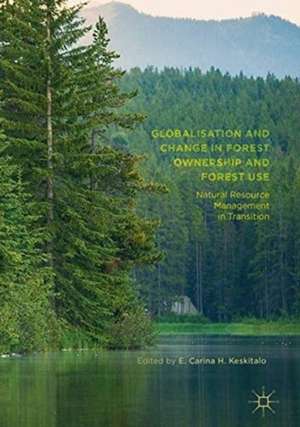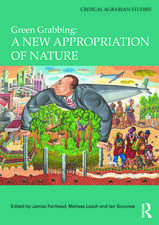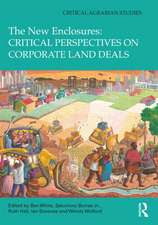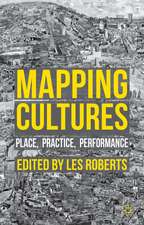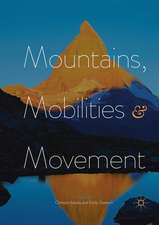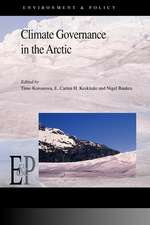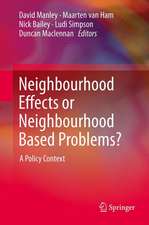Globalisation and Change in Forest Ownership and Forest Use: Natural Resource Management in Transition
Editat de E. Carina H. Keskitaloen Limba Engleză Paperback – 21 apr 2021
This book describes the changing landscape of European forest ownership and explores the impact a new, often urban, generation of forest owners may have on the future of one of our most basic resources – forests. Forests have not played a major role in rural studies thus far, however they constitute an important part of many rural areas. Drawing on Swedish cases and comparison cases from various other areas of Europe, the authors present these ‘new forest owners’ as a pivotal factor in the changing relationships between urban and rural life. The chapters explore how forest production, the relationship to the environment, urban-rural relations and local communities have already changed as well as discussing what might be expected for the future.
A result of work in the Swedish research programme PLURAL and related projects, such as the EU Cost Action FACESMAP, this volume will be of interest to scholars of forestry and rural studies, as well as to researchers in environmental, population and globalization studies more broadly.
| Toate formatele și edițiile | Preț | Express |
|---|---|---|
| Paperback (1) | 578.84 lei 6-8 săpt. | |
| Palgrave Macmillan UK – 21 apr 2021 | 578.84 lei 6-8 săpt. | |
| Hardback (1) | 779.77 lei 6-8 săpt. | |
| Palgrave Macmillan UK – 23 noi 2017 | 779.77 lei 6-8 săpt. |
Preț: 578.84 lei
Preț vechi: 681.00 lei
-15% Nou
Puncte Express: 868
Preț estimativ în valută:
110.86€ • 114.22$ • 92.87£
110.86€ • 114.22$ • 92.87£
Carte tipărită la comandă
Livrare economică 24 februarie-10 martie
Preluare comenzi: 021 569.72.76
Specificații
ISBN-13: 9781349848515
ISBN-10: 1349848514
Pagini: 319
Ilustrații: XI, 319 p. 9 illus., 6 illus. in color.
Dimensiuni: 148 x 210 mm
Greutate: 0.4 kg
Ediția:1st ed. 2017
Editura: Palgrave Macmillan UK
Colecția Palgrave Macmillan
Locul publicării:London, United Kingdom
ISBN-10: 1349848514
Pagini: 319
Ilustrații: XI, 319 p. 9 illus., 6 illus. in color.
Dimensiuni: 148 x 210 mm
Greutate: 0.4 kg
Ediția:1st ed. 2017
Editura: Palgrave Macmillan UK
Colecția Palgrave Macmillan
Locul publicării:London, United Kingdom
Cuprins
Acknowledgement.- Chapter 1. Introduction; E. Carina H. Keskitalo.- Chapter 2: Is there a new European forest owner? The institutional context E.; Carina H. Keskitalo, Gun Lidestav, Heimo Karppinen, Ivana Živojinović.- Chapter 3: Individual forest owners in context; Kerstin Westin, Louise Eriksson, Gun Lidestav, Heimo Karppinen, Katarina Haugen, Annika Nordlund.- Chapter 4 Interactions between forest owners and their forests; Gun Lidestav, Camilla Thellbro, Per Sandström, Torgny Lind, Einar Holm, Olof Olsson, Kerstin Westin, Heimo Karppinen, Andrej Ficko.- Chapter 5. Is there an end to the concentration of businesses and people?; Urban Lindgren, Jonathan Borggren, Svante Karlsson, Rikard H Eriksson, Bram Timmermans.- Chapter 6: Rural-urban policies: changing conceptions of the human-environment relationship; E. Carina H. Keskitalo; Svante Karlsson; Urban Lindgren; Örjan Pettersson, Linda Lundmark, Bill Slee, Mariann Villa, Diana Feliciano.- Chapter 7 Multi-level planning and conflicting interests in the forest landscape; Olof Stjernström, Rein Ahas, Sabina Bergstén, Jeannette Eggers, Hando Hain, Svante Karlsson, E. Carina H. Keskitalo, Tomas Lämås, Örjan Pettersson, Per Sandström, Karin Öhman.- Chapter 8. Forests in common and their contribution to local development; Gun Lidestav, Nevenka Bogataj, Paola Gatto, Anna Lawrence, Olof Stjernström, Jenny Wong.- Chapter 9. Conclusions New forest owners under globalised, rural-urban relations; E. Carina H. Keskitalo.
Notă biografică
E. Carina H. Keskitalo is a Professor of Political Science at the Department of Geography and Economic History, Umeå University, and an Adjunct Professor at the Department of Forest Resource Management, Swedish University of Agricultural Sciences, Umeå, Sweden.
Textul de pe ultima copertă
This book describes the changing landscape of European forest ownership and explores the impact a new, often urban, generation of forest owners may have on the future of one of our most basic resources – forests. Forests have not played a major role in rural studies thus far, however they constitute an important part of many rural areas. Drawing on Swedish cases and comparison cases from various other areas of Europe, the authors present these ‘new forest owners’ as a pivotal factor in the changing relationships between urban and rural life. The chapters explore how forest production, the relationship to the environment, urban-rural relations and local communities have already changed. The authors also discuss what might be expected for the future.
A result of work in the Swedish research programme PLURAL and related projects, such as the EU Cost Action FACESMAP, this volume will be of interest to scholars of forestry and rural studies, as well as to researchers in environmental, population and globalization studies more broadly.
Caracteristici
Explores the impact urban forest owners will have on the future of our forests Discusses the growing tension between rural urban relationships in terms of forest ownership Describes the move towards a globalised management of our natural resources, using forests as a case study
